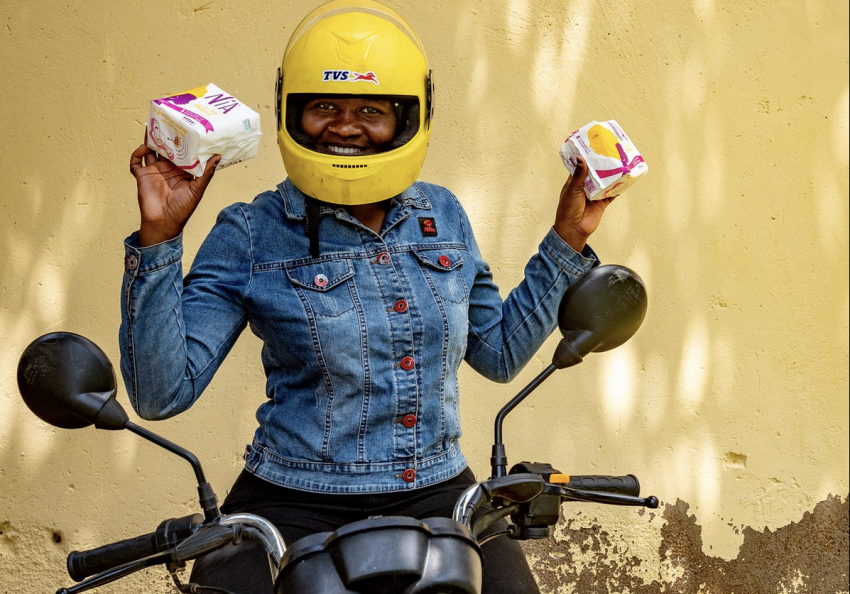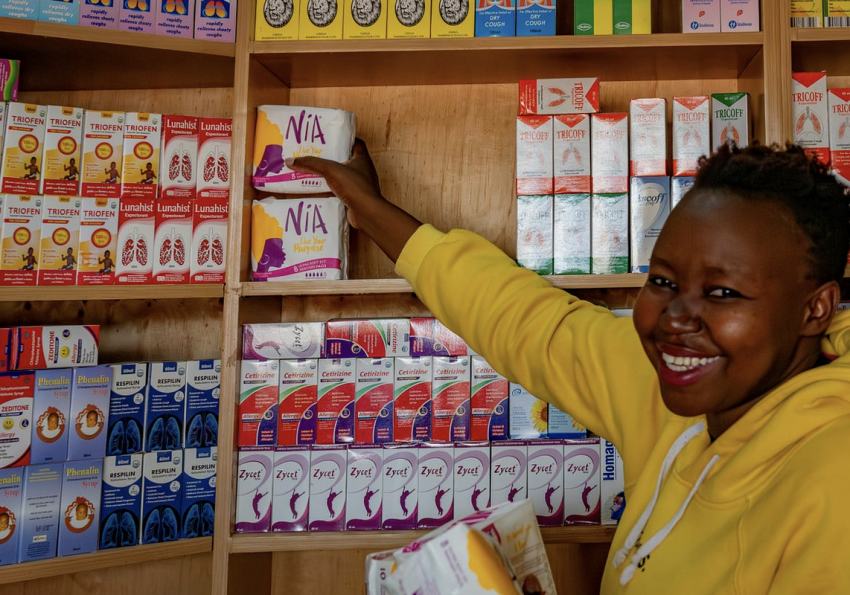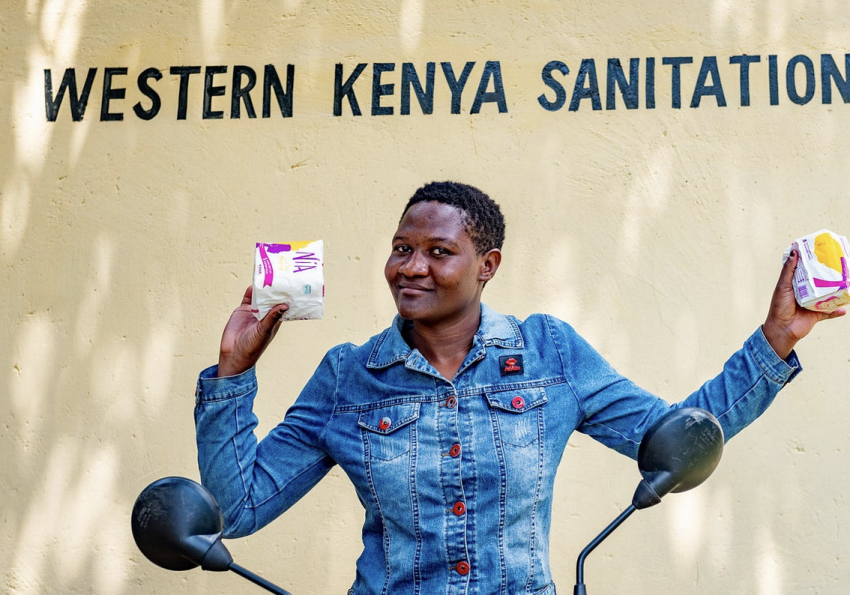It’s a Boda Girl Thing

With limited access to information about menstrual hygiene products and an unreliable supply chain of high-quality sanitary products and services, women and girls are often denied the dignity and comfort to go about their daily lives worry-free.
In Lusi Village, Siaya County, Kenya, 34-year-old Morine Atieno Owuor, a mother of three, is working to change that in her community. She is championing access to essential Menstrual Hygiene Management products and information through the Red Pride project.
This initiative, led by Matibabu Foundation and USAID, equips women with information on managing menstruation, confronting menstruation myths, and enhancing availability, affordability and reliable supply of menstruation health products, especially in rural areas and in marginalized communities.

One of the boda girls showing off the menstrual hygiene products she keeps stocked for her female customers.
Photo Credit: Marian Siljeholm, USAID
Morine is a trained boda (motorcycle in Swahili) taxi driver who provides safe rides for women, and distributes disposable and reusable menstrual products to her customers. Using the Red Pride App she receives business orders for sanitary products on her mobile phone and makes prompt deliveries to her clients doorsteps.
In her new job as a boda girl delivery driver, Morine generates a monthly income of 16,800 KSH ($126) — a huge jump in her income from her previous job. With additional funding, she can comfortably pay school fees for her daughter. She also recently enrolled in a savings and loan program with a microfinance institution.

An entrepreneur proudly displays her new menstrual hygiene products on a tidy shelf.
Photo Credit: Marian Siljeholm, USAID
Morine has become a leader in mobilizing and educating her community on why it’s important that women and girls are able to easily access essential menstrual information and products. Community members, including male leaders, now regularly invite Morine to community dialogue forums where she educates the community about menstrual health and hygiene.
“Nowadays I get invitations from the area chief to go and talk about menstrual hygiene during community gatherings known as barazas and I do carry sanitary products with me, which some of the participants buy after the session,” said Morine. “I now teach with confidence and without fear, something I would not have done before.”

One of the boda girls showing off the menstrual hygiene products she keeps stocked for her female customers.
Photo Credit: Marian Siljeholm, USAID
USAID’s Western Kenya Sanitation Project is improving access to menstrual health products and services by training women to be delivery drivers, helping fight period poverty, and ensuring dignity and comfort to women and girls during menstruation.
To date, 20 women have been trained to become boda Girls, delivering essential menstrual hygiene products at affordable costs, improving the availability of menstrual hygiene products in communities, and in turn, building more self-sufficient livelihoods and incomes for the boda Girls and their families.
This successful collaboration between USAID, local organizations and communities seeks to engage 600 more women and youth in menstrual hygiene enterprises to strengthen the supply chain of high-quality, disposable or reusable menstrual hygiene products, especially in rural areas. USAID aims to reach 500,000 women and girls with accurate information on proper menstrual hygiene management and reliable access to sanitary products in Western Kenya by 2027.
This post originally appeared on USAID Medium.
About the Author(s)
Sarah Samuel
Senior Communications Consultant for USAID’s Western Kenya Sanitation Project (WKSP)
USAID WKSP works in eight western Kenya counties to increase access to safe and sustainable sanitation and menstrual hygiene products and services.